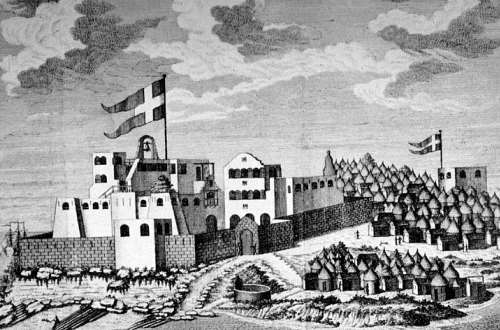
In a pivotal chapter of Ghana’s history, the Fante people of present-day Ghana united forces to create a formidable confederacy along the Gold Coast during the 18th century. Their objective: to staunchly oppose European encroachment and safeguard their autonomy amidst the growing specter of colonial domination.
Dubbed the Great Fante Confederacy, this coalition of states emerged as a central player in shaping Ghana’s nascent history and bolstering the continent-wide struggle against colonial oppression.
Amidst the backdrop of European expansionism, the Fante people recognized the urgent necessity of collective action. Forging alliances among various Fante states along the coast, they formed a united front against the encroaching forces of European traders and colonizers.
Under the astute leadership of their chiefs and elders, the Fante Confederacy employed both diplomatic finesse and military prowess to defend their sovereignty. Their concerted efforts effectively thwarted numerous attempts by European powers to establish dominion over Fante territories.
However, the Fante Confederacy’s resistance was not confined to mere defense; it also entailed proactive measures to assert Fante autonomy and preserve their cultural heritage. Through negotiation, strategic alliances, and occasional armed confrontation, they steadfastly defended their lands, traditions, and political autonomy.
The significance of the Great Fante Confederacy reverberates far beyond Ghana’s borders. It stands as a poignant symbol of African resilience and unity in the face of external aggression, offering inspiration to other peoples contending with the scourge of colonialism across the continent.
Today, the legacy of the Fante Confederacy endures as a testament to the indomitable spirit of the Fante people and their unwavering commitment to self-determination. Their valiant contributions to Ghana’s early history and the broader struggle against colonial oppression remain etched in the annals of African history, serving as a beacon of hope for future generations.
